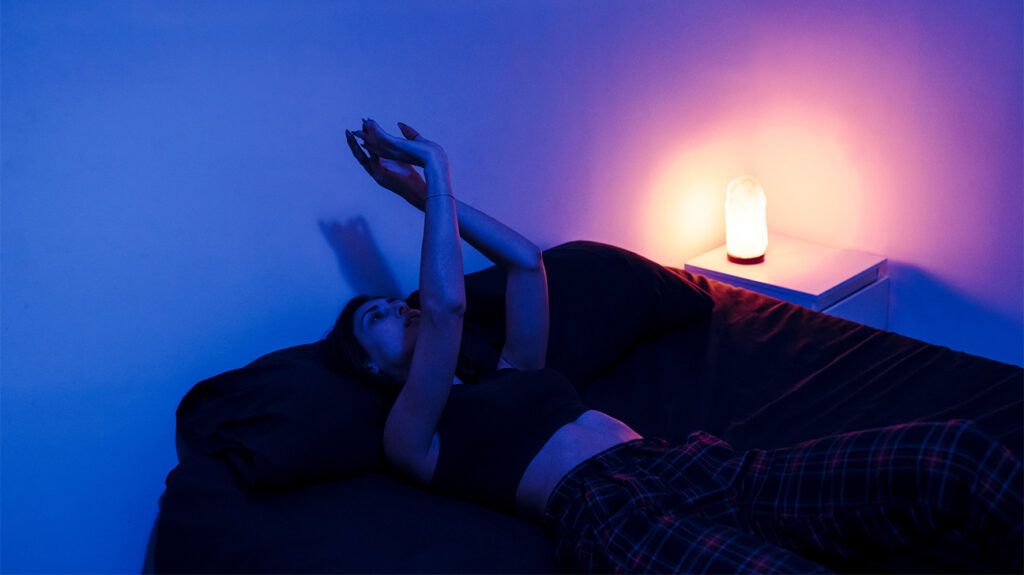If you have anxiety, it can lead to sleeping difficulties and insomnia. Similarly, if you have insomnia, it can worsen the symptoms of anxiety. Doctors can suggest lifestyle strategies, or prescribe specific drugs to help you manage anxiety and insomnia.
Medications for calming sleep anxiety

When you’re living with anxiety, you may experience heightened symptoms when going to bed and trying to sleep. This can lead to sleep disturbances and insomnia.
If you discuss your symptoms with a doctor, they may create a treatment plan that involves:
These medications work by affecting chemicals in the brain known as neurotransmitters. They relax muscles, lower anxiety levels, and help you feel more relaxed and able to sleep.
Some specific medications that doctors may prescribe include:
- Doxepin (Silenor): This primarily treats insomnia, major depressive disorder (MDD), and anxiety disorders. Doxepin is a tricyclic antidepressant (TCAs) that works by affecting five different brain chemicals.
- Eszopiclone (Lunesta): This typically treats insomnia and is a central nervous system depressant medication.
- Ramelteon (Rozerem): Doctors usually prescribe this drug if you have difficulty falling asleep, a condition known as sleep-onset insomnia.
- Zolpidem (Ambien): Doctors use this short-term medication to help you fall asleep faster.
- Estazolam (ProSom): Doctors typically prescribe this in the short term to treat insomnia.
- Zaleplon (Sonata): Doctors use this to treat and manage insomnia in the short term.
- Suvorexant (Belsomra): This treats sleep-onset insomnia and helps you stay asleep if you experience repeated waking throughout the night, known as maintenance insomnia.
- Trazodone (Desyrel): This treats MDD, anxiety disorders, and insomnia.
Other benzodiazepines
More examples of benzodiazepines include:
- Alprazolam (Xanax): This treats anxiety and panic disorders.
- Clonazepam (Klonopin): This drug treats panic disorders and agoraphobia. Doctors may also prescribe this medication for some types of seizures.
- Tranxene T (Clorazepate): This typically short-term drug treats anxiety disorders and some types of seizures.
- Diazepam (Valium): This treats anxiety, muscle spasms, and alcohol withdrawal.
- Flurazepam: This primarily treats insomnia. The brand-name version, Dulmane, is no longer available.
- Lorazepam (Ativan): Lorazepam treats anxiety and is often the first medication doctors prescribe for epilepsy.
- Oxazepam: This treats anxiety disorders and alcohol withdrawal syndrome. The brand-name version, Serax, is no longer available.
- Quviviq: This mainly treats adult insomnia. A generic version of this drug is not yet available, but the active ingredient is daridorexant.
- Doral (Quazepam): This primarily treats adult insomnia.
- Restoril (Temazepam): This treats insomnia by helping people to fall and stay asleep.
If you need help covering the cost of medications, the free Optum Perks Discount Card could help you save up to 80% on prescription drugs. Follow the links on drug names for savings on that medication, or search for a specific drug here.
